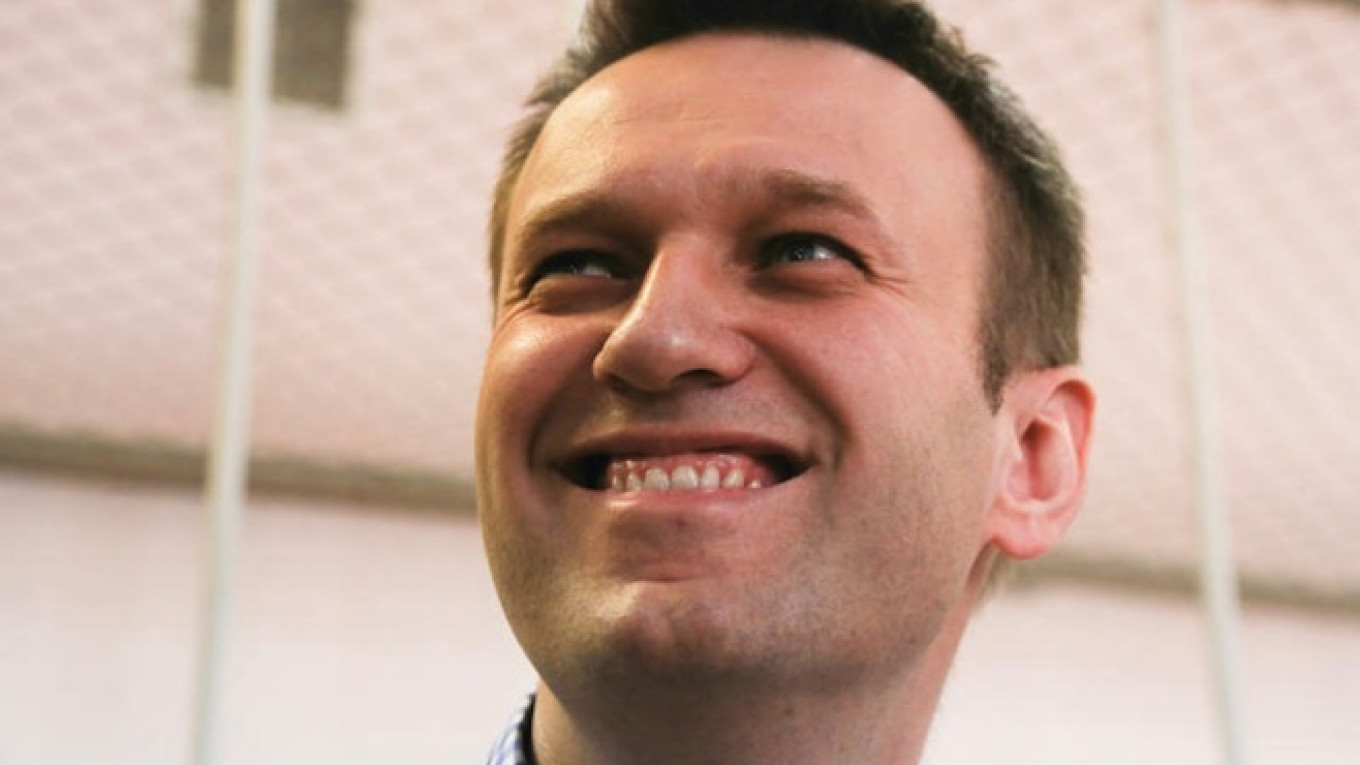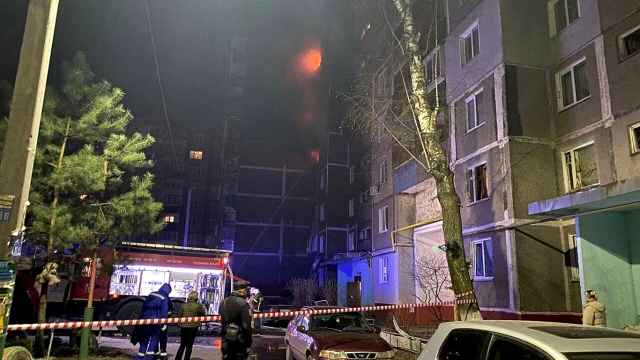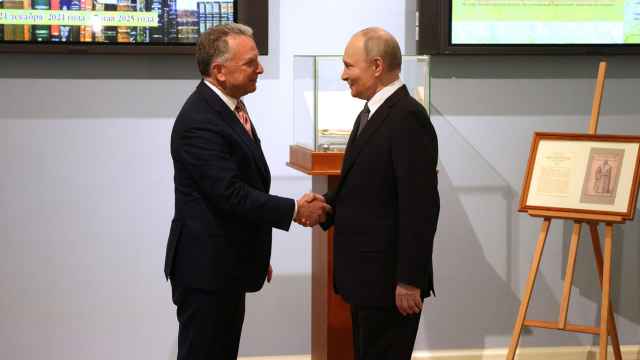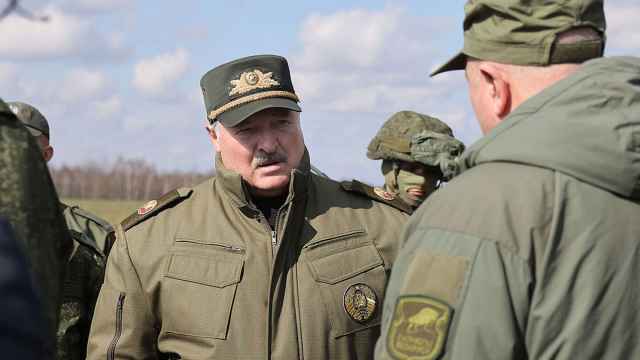Opposition leader Alexei Navalny, currently under house arrest in connection with a criminal case against him, has written an op-ed for the New York Times in which he calls for sanctions on officials and businessmen connected to President Vladimir Putin.
Saying that previous U.S. and EU sanctions in response to Russian military forces in Crimea were "mocked" and acted as "tacit encouragement to Mr. Putin and his entourage," Navalny urged further sanctions "freezing the oligarchs' financial assets and seizing their property."
Navalny's suggested sanctions list included billionaire businessmen Gennady Timchenko, Arkady and Boris Rotenberg, Yury Kovalchuk, Roman Abramovich, Alisher Usmanov, Russian Railways head Vladimir Yakunin, Gazprom head Alexei Miller and Rosneft CEO Igor Sechin.
The opposition leader, whose blog was recently blocked for presenting "extremist material," also urged the West to place sanctions against owners of pro-Kremlin media personalities and United Russia "apparatchiks."
Russia's annexation of Crimea, "has polarized members of Russia's elite, many of whom view it as reckless" Navalny said, adding that "blocking access to their plush London apartments will show that Mr. Putin's folly comes with serious costs." He also speculated that sanctions against wealthy businesspeople would be welcomed by most Russians.
On Thursday Navalny's blog published the results of a poll in which the largest percentage of respondents, presumably his readers, said that businessmen close to Putin — like Timchenko and the Rotenbergs — should be sanctioned. Despite Navalny's LiveJournal blog being blocked for extremism, other opposition bloggers have reposted the activist lawyer's material on their own websites.
Navalny has become a leading figure in the anti-Kremlin opposition after investigating official's corruption and said in his op-ed ,"in 90 percent of those cases, Russian money was laundered in the West." In September he ran for Moscow mayor and received 27 percent of the vote.
Late last month a Moscow district court ruled that Navalny had violated travel restrictions imposed on him as part of a fraud case that observers believe to be politically motivated, confining the politician to house arrest.
Contact the author at c.brennan@imedia.ru
A Message from The Moscow Times:
Dear readers,
We are facing unprecedented challenges. Russia's Prosecutor General's Office has designated The Moscow Times as an "undesirable" organization, criminalizing our work and putting our staff at risk of prosecution. This follows our earlier unjust labeling as a "foreign agent."
These actions are direct attempts to silence independent journalism in Russia. The authorities claim our work "discredits the decisions of the Russian leadership." We see things differently: we strive to provide accurate, unbiased reporting on Russia.
We, the journalists of The Moscow Times, refuse to be silenced. But to continue our work, we need your help.
Your support, no matter how small, makes a world of difference. If you can, please support us monthly starting from just $2. It's quick to set up, and every contribution makes a significant impact.
By supporting The Moscow Times, you're defending open, independent journalism in the face of repression. Thank you for standing with us.
Remind me later.






